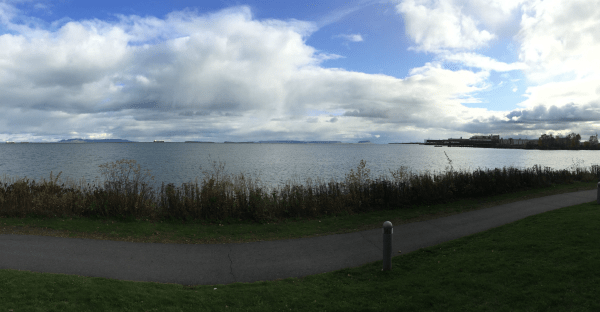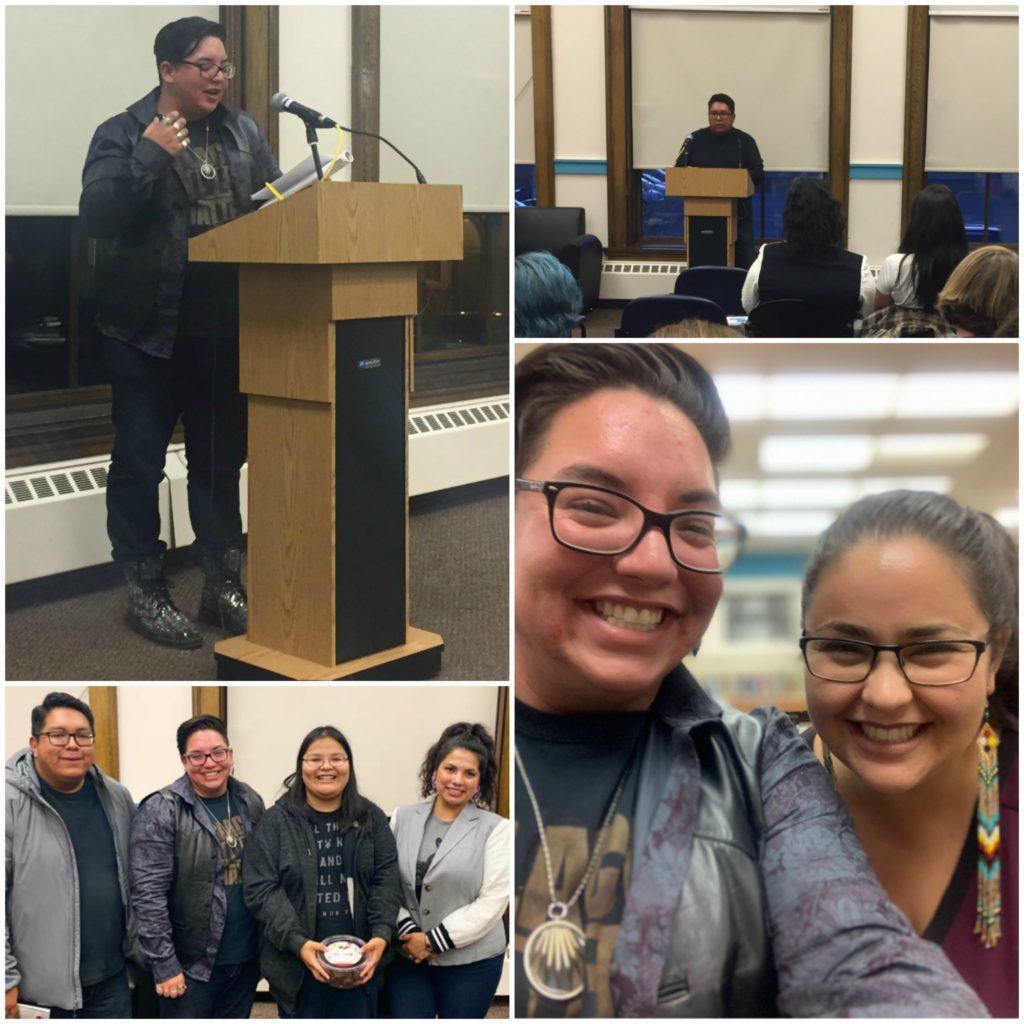Learn about the benefits of constructing a multi-year internship from a MLIS student's perspective.

“The lakes could teach me what the mountains could not”: A conversation with Ktunaxa poet Smokii Sumac
Smokii Sumac is a talented Ktunaxa poet who joined us at the Thunder Bay Public Library last fall. We hosted an open mic poetry night with local talent, and Smokii Sumac shared from his collection, You are enough: Love poems for the end of the world.
Afterwards, we sat down to talk about racism, gender, and the land.
Racism
While Smokii Sumac was at Lakehead University, he gave a workshop on land acknowledgements. He shared:
We had a woman yesterday sort of go, “You know, land acknowledgements help me to remember that colonialism happens.” And I was sort of like, What a privilege to be able to forget that colonialism happens. And I said, “If that’s where you’re at, you need to make sure that you are reminding yourself every single day because we don’t have the luxury of forgetting.”
We also talked about grief and about the very real ways in which Indigenous lives are at risk in Thunder Bay and in the nation as a whole.
My poems about Colten [Boushie] … talk about how he’s our brother, Tina [Fontaine]’s our baby girl, Barbara [Kentner] is our auntie. You know, Barbara is my mom’s name. It could be any of us. I don’t always walk down the street thinking, “Will I be killed today?” but at the same time, the reality is that it’s possible.

Gender
Smokii Sumac is trans and two-spirit, so we talked about what that looks like in ceremony.
One time, I went to a sweat where it was women and men sitting on different sides, and there was a lot of women, and so I said, “Can I sit over here? I’m a two-spirit.” To me, they said, Yes, it was okay. I managed to find people that were good. If that person had said no, I was ready to leave; I was ready to take care of what I needed to, but it’s on us as well to step into that circle and to try and change that circle.
Land
Smokii Sumac is from the Ktunaxa nation, in what is currently known as British Columbia. However, he was actually born in southern Ontario. We talked about relationships to the land and responsibility to the people on whose land we live.
I must have known that the lakes could teach me what the mountains could not, just as the aunties can teach what the mothers cannot.” … I was actually born in Scarborough, Ontario, which is Anishinaabeg territory. And she [Leanne Simpson] just said to me, “Well, you were born here, so what is your responsibility to Anishinaabeg?” so in that way, I think I am a visitor and many settlers were born here, in somebody else’s territory. “What is your responsibility to Anishinaabeg?” That challenged me to think about, What does this land mean to me as a space I was born in, as a space that my body remembers? And then also, How do I connect to those people and do what I can for those people? And then, travelling all over, I do my best to connect with Indigenous people. I do my best to stop in at the reserve gas stations and say hi, even just to put the money into their hands.
Listen to our full conversation below.
“The lakes could teach me” transcript
Feature photo by Samantha Martin-Bird
Samantha Martin-Bird is the Indigenous Relationships Supervisor for the Thunder Bay Public Library. Samantha also has an Hons B.A. in Indigenous Studies, Diaspora & Transnational Studies (University of Toronto) and a B.Ed. (First Nations University). Photo by Tenille K Campbell


